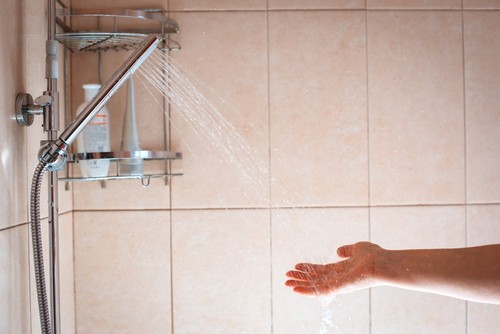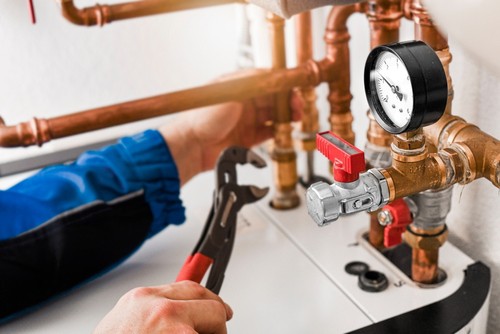Tankless Water Heaters: Benefits and Considerations
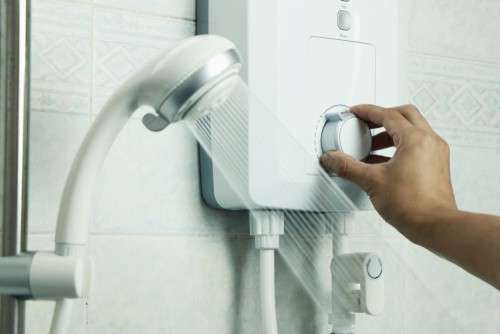
Tankless Water Heaters Benefits and Considerations
Tankless Water Heaters: Benefits and Considerations. In today’s fast-paced world, every aspect of our lives is becoming more streamlined and efficient, and our home appliances are no exception.
One such advancement in home technology is the tankless water heater, which offers a range of benefits over traditional tank-style water heaters.
In this comprehensive guide, we’ll explore the world of tankless water heaters, understand how they work, their advantages, and the important factors to consider before making the switch.
Read on – Tankless Water Heaters: Benefits and Considerations:
Transitioning to Modern Water Heating Solutions
As homeowners seek to enhance energy efficiency and comfort in their homes, the transition to modern water heating solutions becomes a logical step.
Tankless water heaters, also known as on-demand water heaters, have gained significant attention due to their ability to provide hot water efficiently without the need for a storage tank.
How Tankless Water Heaters Work
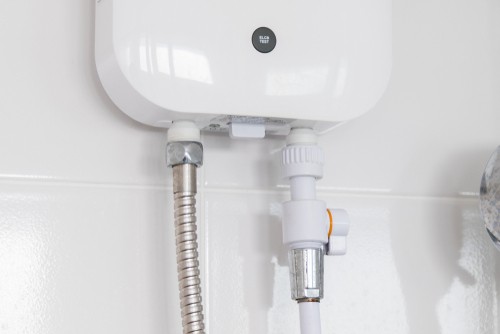
Unlike traditional water heaters that store and heat a fixed amount of water in a tank, tankless water heaters heat water on demand as it flows through the unit.
When you turn on a hot water tap, cold water travels through a heat exchanger within the tankless unit. The heat exchanger rapidly heats the water using electric coils or a gas burner, ensuring a constant supply of hot water as long as the tap remains open.
Tankless water heaters consist of several key components, including the heat exchanger, a flow sensor, a temperature sensor, and a modulating gas valve (in gas-powered units).
These components work harmoniously to detect water flow and adjust heating intensity to deliver hot water at a consistent temperature.
Benefits of Upgrading to Tankless Water Heaters
Energy Efficiency and Cost Savings
One of the most significant advantages of tankless water heaters is their energy efficiency. Traditional water heaters continuously heat and reheat water stored in the tank, leading to energy wastage.
Tankless units, on the other hand, only heat water when needed, resulting in lower energy consumption and reduced utility bills.
Unlimited Hot Water Supply
With tankless water heaters, the supply of hot water is virtually limitless. Say goodbye to the frustration of running out of hot water during your morning shower – tankless units provide a continuous flow of hot water, ensuring comfort and convenience.
Space-Saving Design
Tankless water heaters are compact and space-saving. Unlike their bulky tank-style counterparts, tankless units can be mounted on walls or installed in tight spaces, freeing up valuable square footage in your home.
Factors to Consider Before Upgrading

Initial Installation Cost
While tankless water heaters offer long-term savings, their initial installation cost can be higher than traditional units. Considering your budget and evaluating the potential payback period for energy savings is important.
Compatibility with Existing Plumbing
Tankless water heaters may require adjustments to your existing plumbing system, including venting requirements and gas line size (for gas-powered units). Ensure that your home’s infrastructure is compatible before making the switch.
Water Usage Patterns
Understanding your household’s hot water usage patterns is crucial. Tankless units are ideal for homes with consistent hot water demand, but if you frequently use multiple hot water fixtures simultaneously, you may need to size the unit accordingly.
Pros and Cons of Tankless Water Heaters
Advantages
- Reduced Energy Bills: Tankless water heaters can lead to significant energy savings over time, helping you cut down on monthly utility expenses.
- Longer Lifespan: Tankless units typically have a longer lifespan than traditional water heaters, which means fewer replacements and less waste.
- Reduced Environmental Impact: The energy efficiency of tankless water heaters contributes to a reduced carbon footprint, making them a more environmentally friendly choice.
Disadvantages
Higher Initial Cost: The upfront cost of purchasing and installing a tankless water heater can be higher than that of traditional units.
Potential Flow Rate Limitations: While tankless units provide continuous hot water, the flow rate may be limited, especially if multiple fixtures are in use simultaneously.
Selecting the Right Size and Type
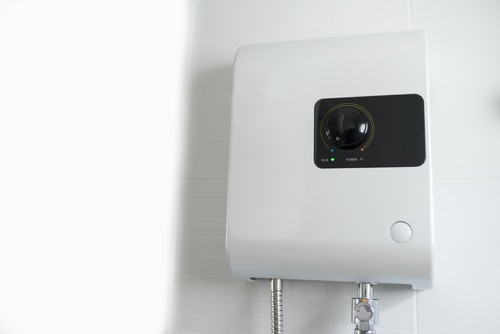
Sizing your tankless water heater appropriately is essential. Consider the number of hot water fixtures in your home and calculate the flow rate needed to meet simultaneous hot water demands.
Both gas and electric tankless water heaters have their advantages. Gas units provide higher flow rates and are more suitable for homes with high hot water demand. Electric units are often easier to install and are a better fit for homes without access to natural gas.
Installation Process and Considerations
While some homeowners are skilled DIY enthusiasts, the installation of tankless water heaters is best left to professionals. Proper installation ensures safety, efficiency, and compliance with local building codes.
Gas-powered tankless water heaters require proper venting to expel exhaust gases safely. Venting options include direct venting and power venting, each with its own considerations.
Maintenance and Longevity
Regular maintenance, such as flushing the system to remove mineral deposits, is essential to maintain optimal performance and efficiency.
If your area has hard water, consider installing a water softener to prevent mineral buildup within the tankless unit.
Addressing Common Concerns
Will a tankless water heater provide sufficient hot water for multiple fixtures?
Yes, but sizing the unit appropriately is crucial to ensure adequate flow rates for simultaneous usage.
Can I install a tankless water heater myself?
For safety and compliance reasons, professional installation is recommended.
What is the lifespan of a tankless water heater?
With proper maintenance, tankless units can last 20 years or more.
Comparing Tankless Water Heaters with Traditional Tanks

- Tankless water heaters offer higher efficiency and energy savings compared to traditional tank-style units.
- Tankless units save space and can be installed in various locations, while traditional tanks require dedicated space.
Frequently Asked Questions (FAQs)
Are tankless water heaters suitable for large households?
Yes, but sizing is crucial to ensure an adequate hot water supply.
How much space can I save by switching to a tankless water heater?
Tankless units are compact and can free up valuable space in your home.
What is the typical payback period for the higher initial cost?
The payback period varies, but energy savings over time can offset the initial investment.
Can I retrofit a tankless water heater to my existing plumbing?
In some cases, adjustments to plumbing and gas lines may be necessary.
Are there any safety concerns with tankless water heaters?
When properly installed and maintained, tankless water heaters are safe to use.
Tankless Water Heaters: Benefits and Considerations – Conclusion

In conclusion, the transition to tankless water heaters offers a range of benefits, from energy efficiency and unlimited hot water supply to space-saving design.
By carefully considering factors like installation cost, compatibility, and water usage patterns, you can make an informed decision that aligns with your household’s needs.
With proper maintenance and attention to sizing, a tankless water heater can provide long-term energy savings and enhanced comfort, transforming your daily hot water experience.
As you embrace modern technology in your home, remember that efficiency and comfort can go hand in hand.
Are you seeking professional and reliable plumbing services in Singapore? Contact us today!


